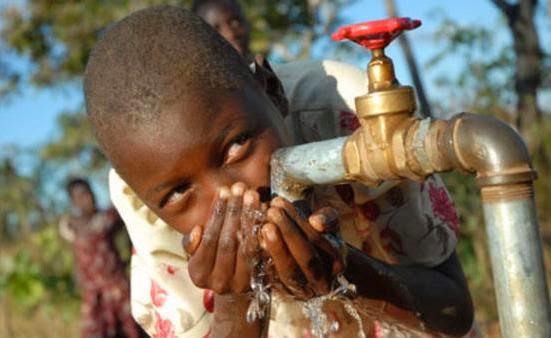Community Water and Sanitation Agency Increases access to potable water in Upper East
 The Community Water and Sanitation Agency (CWSA) in the Upper East Region increased access to potable drinking water for communities from 32 per cent in 2016 to 67 per cent in the 2017 season.
The Community Water and Sanitation Agency (CWSA) in the Upper East Region increased access to potable drinking water for communities from 32 per cent in 2016 to 67 per cent in the 2017 season.
It targeted to serve about 1.4 million people with potable drinking water but could serve only about 946,568 people in the region following some technical concerns.
Mr John Godson Aduakye, Acting Regional Director of the CWSA disclosed these in an interview with the Ghana News Agency in Bolgatanga and said CWSA provided about 3,700 boreholes, 512 hand dug wells, 17 limited mechanised schemes and 23 conversional pipe lines within the same period.
He said per the Agency’s water distribution standards, about 300 people were expected to share one borehole in every community in the region and indicated that it was not fair for one to travel more than 500 metres to have access to water.
He expressed concern about the settlement patterns of the people in the region, especially those living in rural communities and said the settlement patterns did not conform to the Agency’s standards and therefore increased the cost of projects planned for some communities.
The Acting Regional Director said as part of its mandate in ensuring good health, the agency established Health Clubs in some selected Basic Schools across the region on hand washing to promote good and hygienic lifestyles.
He said the Agency had considered and factored into its activities the construction of public toilets at border areas in the region to contain the practice where travellers resorted to open defecation around the country’s frontiers.
He appealed to Landlords to construct household toilets in their homes and avoid open defecation and said the practice was responsible for most of the water borne diseases in the region.
The Chief Extension Service Specialist at the CWSA, Mr Emmanuel Adii said a survey conducted in 2014-2015 to ascertain whether services rendered were still actively in use, revealed that out of the 3,700 water sources extended to communities, about 820 were broken down.
He said water was not only of social importance, but also of economic importance and urged communities to adopt the culture of maintenance and ensure that they regularly maintained their facilities to prolong their life-spun.
Source: GNA
